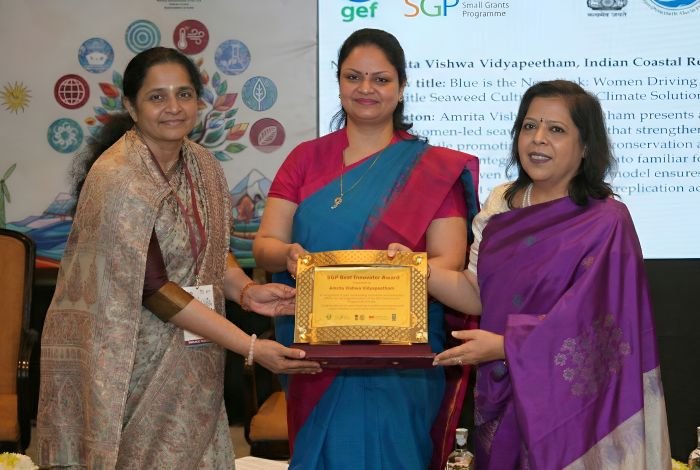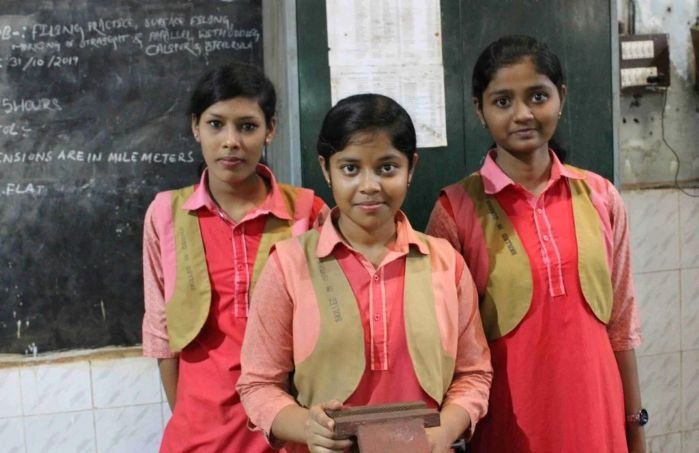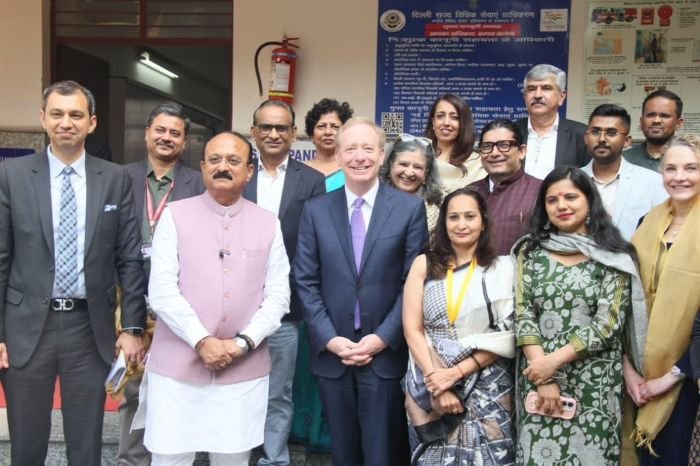IIT Bombay, IIT Delhi rank among top 50 in Engineering & Technology, also features impressively in other subjects

UK-based international higher education company Quacquarelli Symonds (QS), which publishes international rankings of universities annually under its brand of QS World University Rankings® on March 4 released QS World University Rankings 2020 by Subject. These rankings by subject rank the world’s top universities in individual subject areas, covering 48 subjects categorized in five broad areas of Arts & Humanities, Engineering & Technology, Life sciences & Medicine, Natural Sciences, and Social sciences & Management.
In case of India, even though global rankings of its institutions of higher education is generally received with a general sense of inferiority complex as the case is made out that the country lacks world class universities, the just released subject rankings by QS, does offer some cheer and a hope that we can. IIT Bombay ranks at 44 and IIT Delhi at 47 and both together are among the top 50 universities in Engineering & Technology. The list is followed by IIT Kharagpur (86), IIT Kanpur (96), IISc Bangalore (103), and IIT Roorkee (156).
Jawaharlal Nehru University (JNU) is the only university from India to feature in top rankings in arts & humanities with a rank of 162. Similarly, AIIMS, New Delhi is the only medical school in top ranking under Life sciences & Medicine and ranks at 231. IIT Delhi ranks at 183 in Social sciences & Management and is followed by IIT Bombay at 203 in the category.
In individual subjects IIM Ahmadabad and IIM Bangalore ranks in the bad of 51-100 in Business & Management Studies. IIM Calcutta, IIT Bombay and IIT Delhi are in 101-150 band while as ISB Hyderabad features in 151-200 band.
In engineering subjects, IIT Bombay and IIT Delhi are in 51-100 range in Computer Science & Information Systems. In the same discipline IIT Kharagpur and IIT Madras feature in 101-150 band while as IISc comes under 151-200 band. In chemical engineering , IIT Bombay ranks top with a rank of 50 globally. IISc and IIT Delhi are in 51-100 range while as IIT Kanpur, IIT Kharagpur and Indian Institute of Chemical Technology, Mumbai ranks in the band of 101-150 in chemical engineering. In Civil, IIT Bombay, IIT Delhi and IIT Madras rank in 51-100 range while as IISc and IIT Kanpur are in 151-200 range. IIT Bombay again breaks in Electrical & Electronic subject with a ranking in 51-100 range. IIT Kharagpur and IIT Madras give it company in this band. IISc, IIT Kanpur and IIT Roorkee feature in 151-200 range in the same subject. In Engineering Mechanical, Aeronautical & Manufacturing IIT Bombay, IIT Kharagpur, and IIT Madras are placed in 51-100 range whereas IIT kanour and IISc are in 101-150 band.
University of Delhi is the lone entry from India in Economics & Econometrics and ranks in the 101-150 in the subject. In law, O.P Jindal Global University, sonepat is in 101-150 range followed by NLSIU, Bangalore in 151-200 band. In Statistics & Operational Research IIT Delhi features in 101-150 range.JNU ranks in the range of 101-150 in Politics & International Studies as well in Sociology. AIIMS ranks in the band of 151-200 in medicine. In Architecture IIT Khargpur, IIT Madras and IIT Roorkee feature in 151-200 range.
In Art & Design, IIT Bombay ranks in the 51-100, National Institute of Design, Ahmadabad in 101=150 and IISc in 151-200 band. In Agriculture & Forestry, IIT Kharagpur ranks within 151-200 followed by BHU, Varanasi in 201-250 band.
In Chemistry, IIT Delhi, IIT Kanpur and IIT Madras are in 151-200 band while as IIT Kharagpur is in 201-250 range. In Mathematics, Indian Statistical Institute, Kolkata, IIT Bomany, IIT Kanpur and IIT Madras feature in 151-200 range. In Physics & Astronomy, IIT Madras and IIT kapurare in 151-200 band followed by Delhi university in 201-250 and IIT Kharagpur in 251-300 range. In environment sciences IIT Bombay is in 101-150 followed by IISc and IIT Kharagpurin 201-250 and JNU in 251-300 range.
Ashwin Fernandes. Regional Director for QS Quacquarelli Symonds in Middle East, North Africa & South Asia; CEO for QS IGAUGE Rating System, who was present at an event organized by a private university to announce its own ranking under the QS subject rankings when asked about achievements by India as a country failed to highlight them and struggled to answer media queries. It may be mentioned that he is seen in events of this private university whenever QS big announcements or rankings are released which raises certain questions on the independence of these rankings.
The 48 subjects:
Arts & Humanities : Archaeology, Architecture, Art & Design, Classics & Ancient History, English Language & Literature, History, Linguistics, Modern Languages, Performing Arts, Philosophy. Theology, Divinity & Religious Studies
Engineering & Technology: Computer Science & Information Systems, Engineering Chemical, Engineering CiviI & Structural, Engineering Electrical & Electronic, Engineering Mechanical, Aeronautical & Manufacturing, Engineering Mineral & Mining
Life sciences & Medicine: Agriculture & Forestry, Anatomy & Physiology, Biological Sciences, Dentistry, Medicine, Nursing, Pharmacy & Pharmacology, Psychology, Veterinary Sciences
Natural sciences : Chemistry, Earth & Marine Sciences, Environmental Sciences, Geography, Materials Science, Mathematics, Physics & Astronomy
Social sciences & Management: Accounting & Finance, Anthropology, Business & Management Studies, Communication & Media Studies, Development Studies, Economics & Econometrics, Education & Training, Hospitality & Leisure Management, Law, Library & Information Management, Politics & International Studies, Social Policy & Administration, Sociology, Sports-related Subjects, Statistics & Operational Research
How are these rankings arrived at?
Each of the subject rankings is compiled using four sources. The first two of these are QS’s global surveys of academics and employers, which are used to assess institutions’ international reputation in each subject. The second two indicators assess research impact, based on research citations per paper and h-index in the relevant subject. These are sourced from Elsevier’s Scopus database.
These four components 9 Academic reputation, Employer reputation, Research citations per paper and H-index)are combined to produce the results for each of the subject rankings, with weightings adapted for each discipline.








